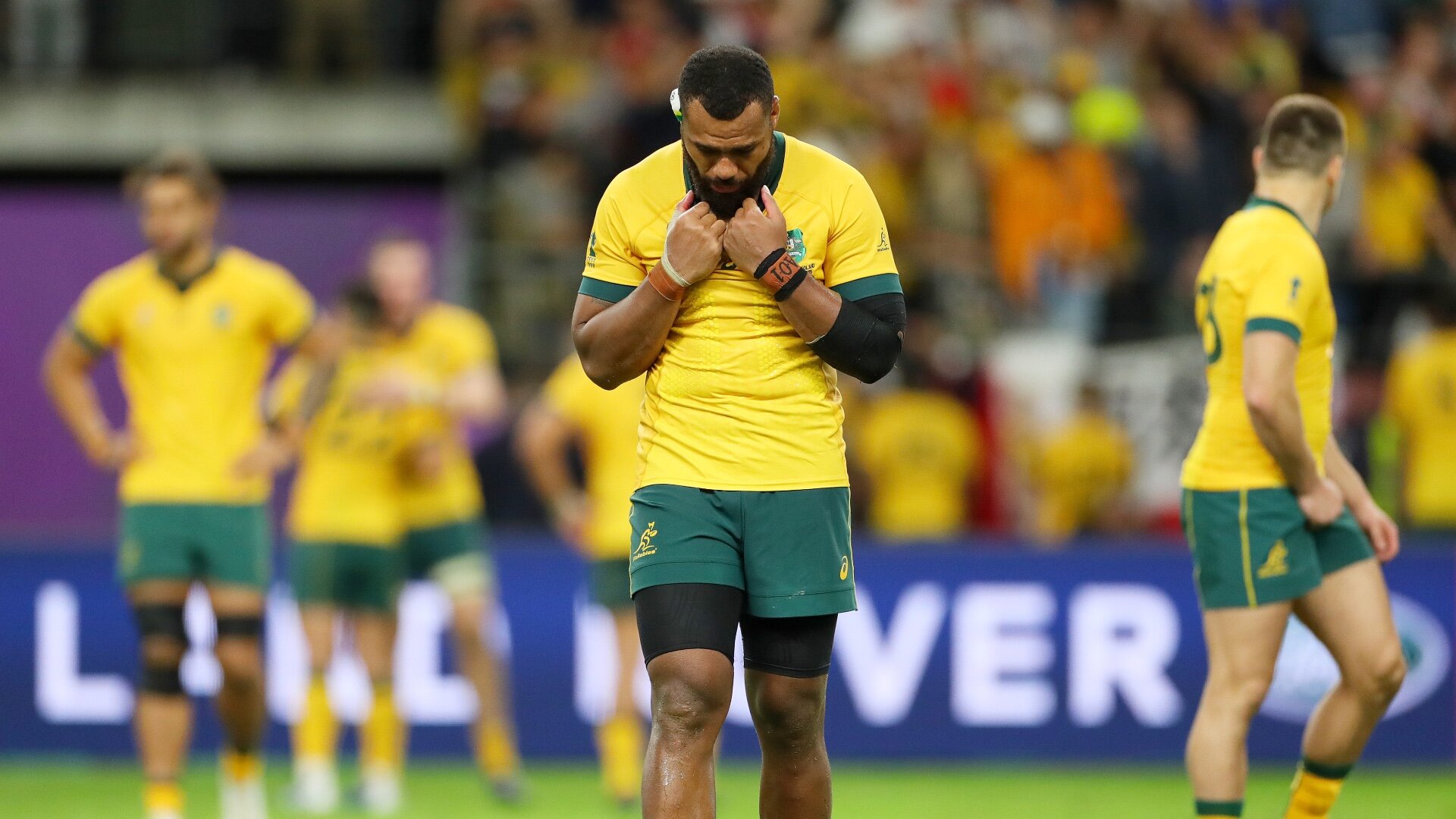UN law quoted after Kerevi's Fijian comments spark eligibility debate

What was once a joke by Wallabies centre Samu Kerevi at a function in Fiji has unearthed a long-lasting criticism of World Rugby.
The 26-year-old recently said that he is moving to Suntory Sungoliath in Japan on the advice of his manager, saying that it would allow him to represent Fiji at the next World Cup in 2023.
Kerevi has since backtracked from those comments, showing his pride in playing for the Wallabies and stating that his comments were taken out of context.
Many Australians were affronted by what Kerevi said, but the former Reds player has been pivotal in reigniting a debate that has been raging on for years surrounding player eligibility.
Before 2000, players with dual nationalities could switch allegiances and play for another country. A number of players did this, including legendary All Blacks flanker Michael Jones, who had played for Samoa at the beginning of his career.
(Continue reading below…)
This is also seen a lot in rugby league, where players have freely moved between countries. However, since 2000, players have only been eligible to represent one union country.
This law by World Rugby has been tweaked with the introduction of sevens to the Olympics which does provide an opportunity to change countries, but this has not been an easily exploited option.
Many players have campaigned in the past to have this ruling changed, with the CEO of the Pacific Rugby Players Welfare and former Samoa international, Dan Leo, has called these laws “outdated” and “archaic”.
The former Wasps forward also said on Twitter: “UN humanitarian law protects the rights of an individual to hold dual citizenship & exercise those rights, hence the Olympics ruling.”
He went on to question what a home country actually is, saying: “What’s a ‘home country’ these days? Place of birth? Where you grew up? Where you permanently live? Where you played most of your rugby? For whom you first played Test rugby? Current rules only recognise last. Life isn’t like that and this blanket approach – no longer fit for purpose.”
Time to end these outdated laws that stop our island players from returning to play for their ancestral homes@WorldRugby https://t.co/8EWRl69AL2
— Daniel Leo (@danleo82) November 17, 2019
He should be able to switch if he wants. UN Humanitarian law protects the rights of an individual to hold dual citizenship & excercise those rights, hence the Olympics ruling. @WorldRugby’s archaic laws prevent that right. https://t.co/pi92auKfxx
— Daniel Leo (@danleo82) November 17, 2019
What’s a ‘home country’ these days? Place of birth? Where you grew up? where you permanently live? Where u played most of your rugby? For whom you 1st played test rugby?
Current rules only recognise last. Life isn’t like that & this blanket approach- no longer fit for purpose https://t.co/SIBdz3QU9K
— Daniel Leo (@danleo82) November 19, 2019
Such law changes will carry problems and complications in themselves, including how many countries a player can play for, how many times can they switch or whether they can change between multiple tier one nations or whether it is simply between tier one and tier two.
But this is nonetheless something that World Rugby must address in the future and clarify their stance. Bristol full-back Charles Piutau is one player that has brought this topic to attention in recent years, as he has sought to play for Tonga after being overlooked by the All Blacks.
The selection of two uncapped Kiwis in the Wales squad hasn't gone down well with Gavin Henson
https://t.co/QtCwVDUnpr— RugbyPass (@RugbyPass) November 20, 2019
Despite being one of the form players in the northern hemisphere while at Wasps, Ulster and now Bristol, his 17 caps in New Zealand have prevented him from representing Tonga, for whose under-20 side he represented. There is no reason that he would not have just as much pride playing for either country, which brings World Rugby’s law in question.
In a week where residency qualifications have been the centre of attention after New Zealand-born players Willis Halaholo and Johnny McNicholl were called up for Wales, this is yet another dimension to rugby’s eligibility laws. Whether Kerevi wanted to or not, he has fanned the flames of a debate that many want World Rugby to look into again.
WATCH: RugbyPass went behind the scenes with the Tonga national team as they prepared for the 2019 World Cup in Japan
















